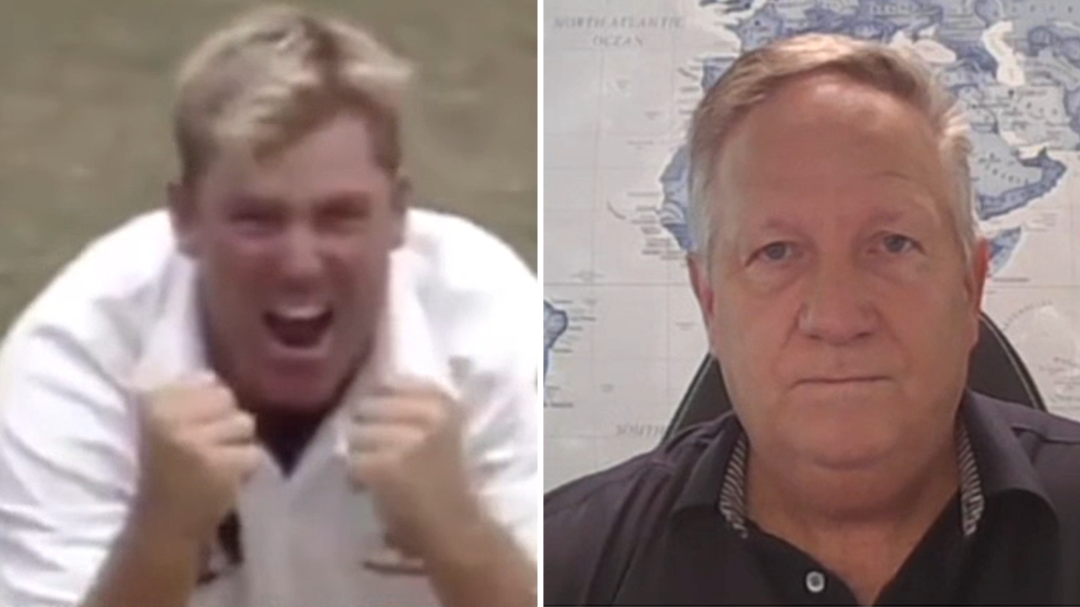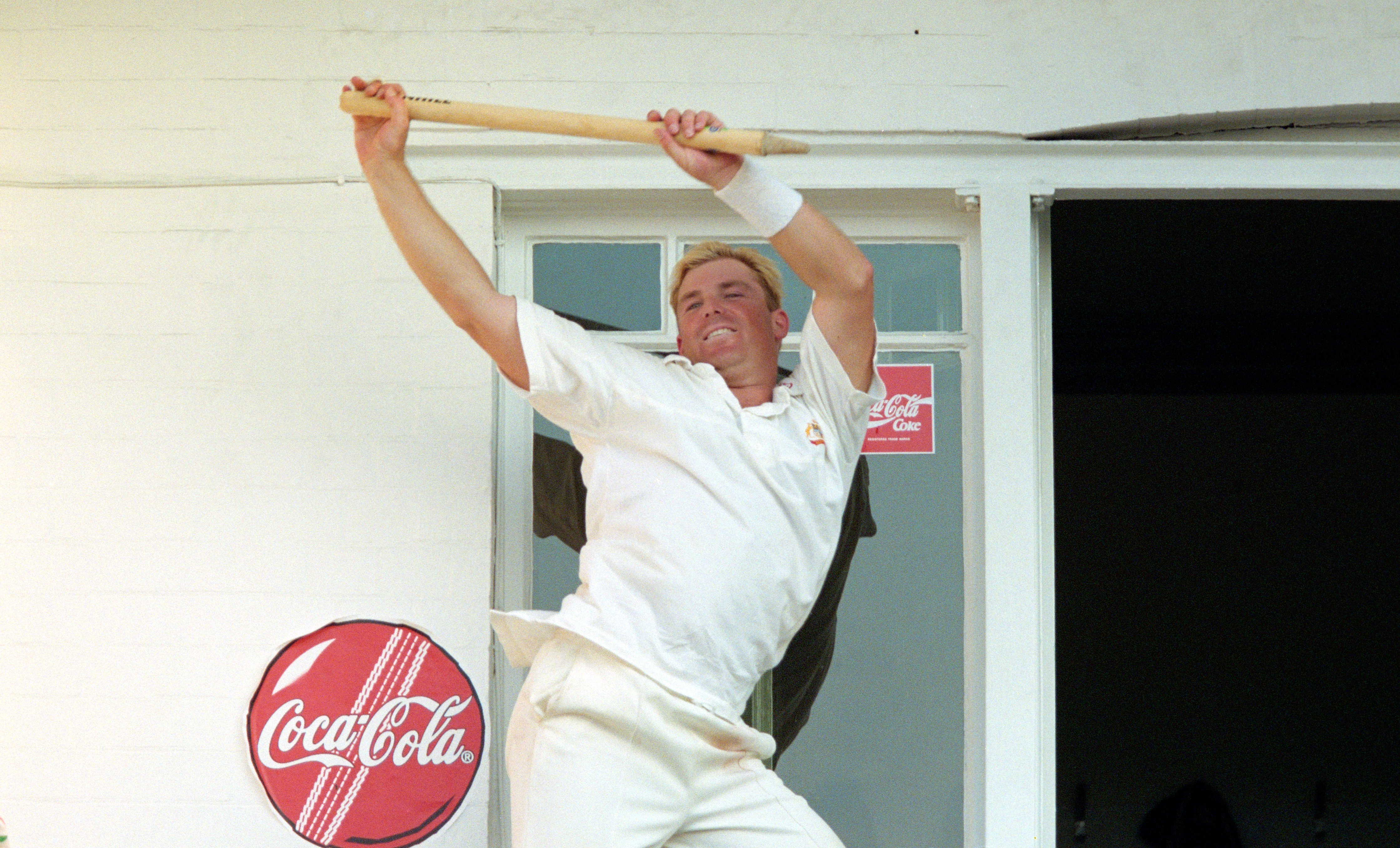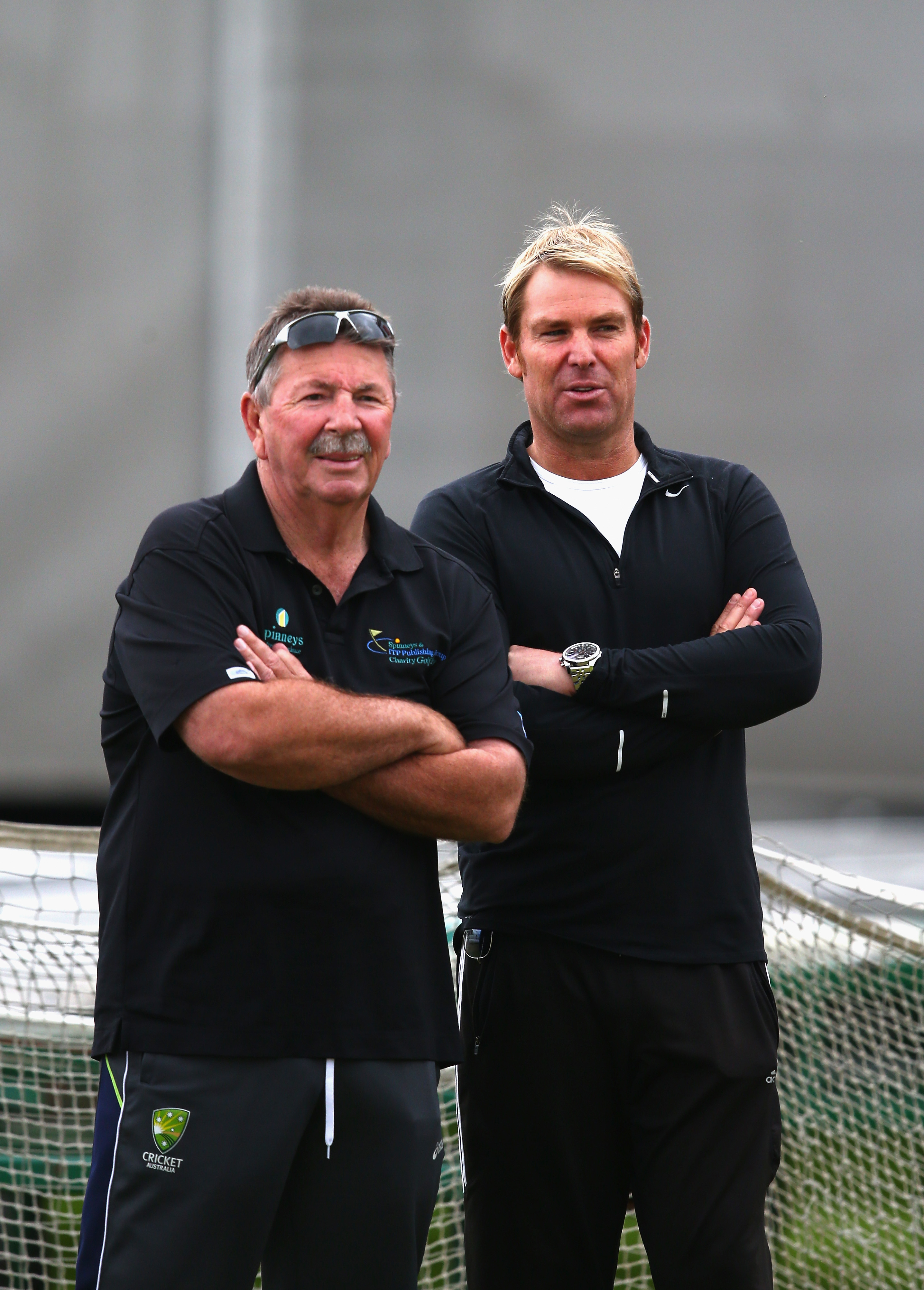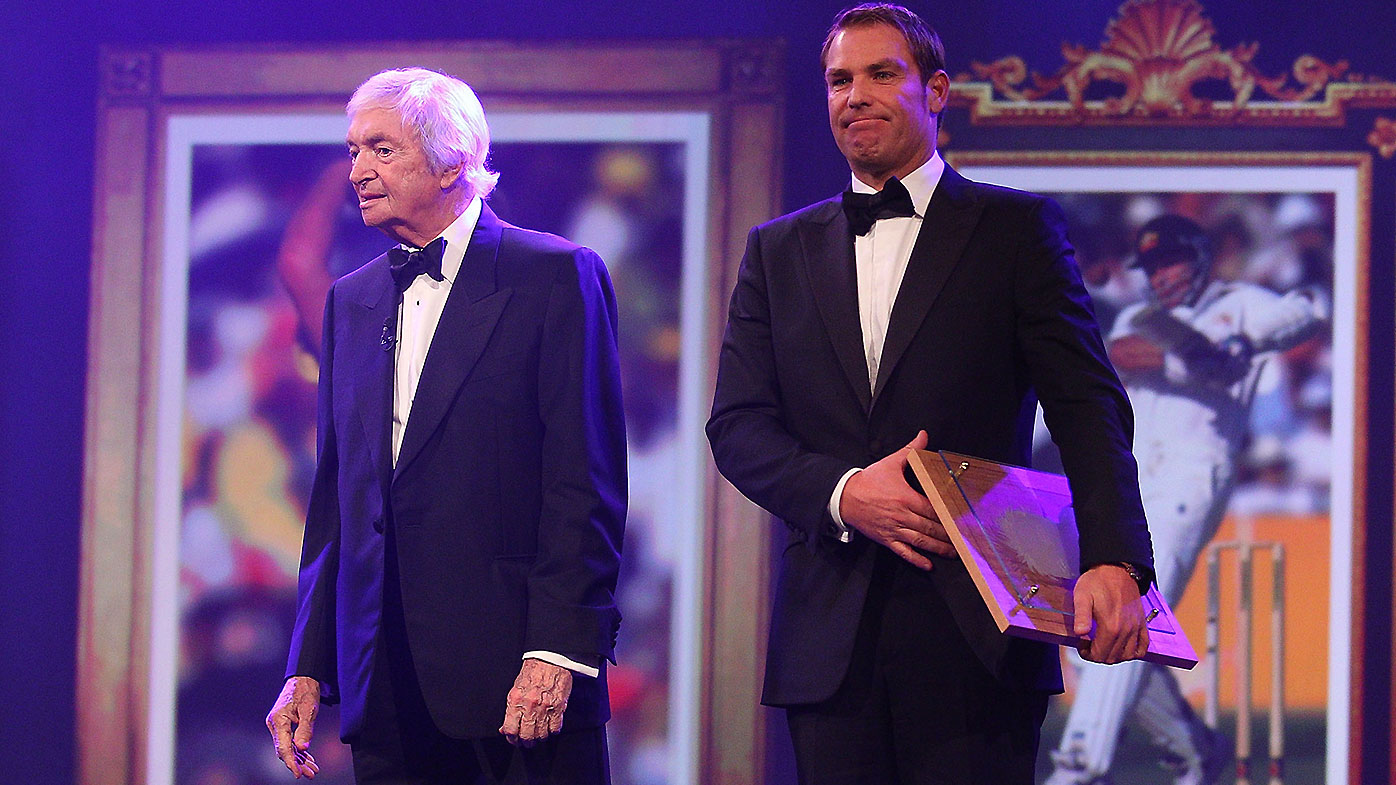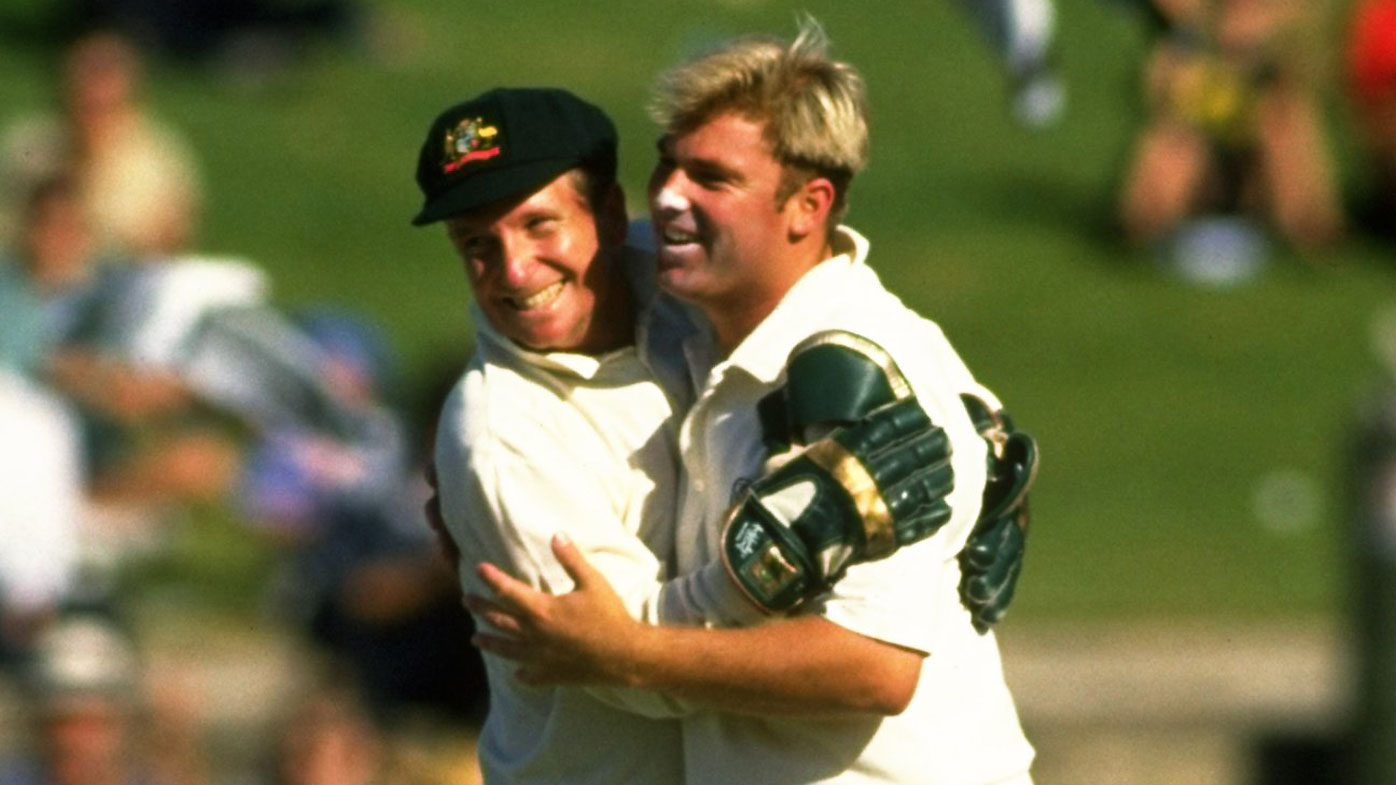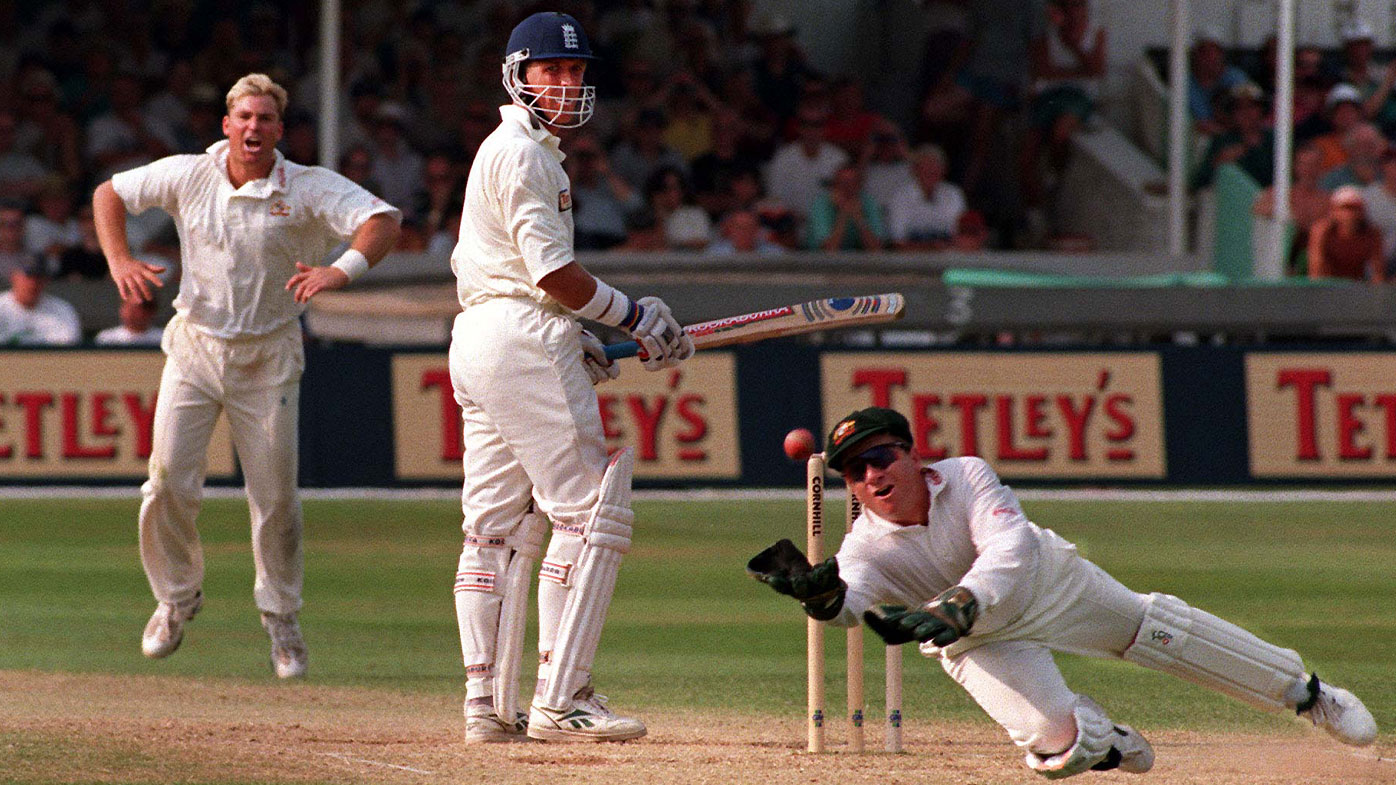Shane Warne‘s former teammate Ian Healy says he’s absolutely devastated about the spin king’s death but wasn’t surprised that he was taken so young due to his famously turbulent lifestyle.
Healy had the privileged position of wicketkeeping to Warne for the first half of the legend’s career before his retirement in 1999, with the pair combining for many of Warne’s wickets during the early part of his career.
Despite being one of the best sportspeople in the country, Warne was renowned for enjoying his life off the field, never sticking to strict diets or alcohol bans like many professional athletes do.
READ MORE: How ‘shocked’ Mark Taylor found out about Warne’s death
READ MORE: Cummins’ powerful tribute to ‘all-time favourite’ Warne
READ MORE: Ten of the best from Shane Warne’s illustrious career
GALLERY: Warne’s remarkable cricket life in pictures
While a heart attack was the cause of Warne’s death while holidaying in Thailand, Healy revealed that he feared the spin king would succumb to another health issue.
“An early passing didn’t surprise me for Warnie,” he told Nine’s Today. “He didn’t look after his body that well. He yo-yoed up and down.
“He didn’t put much sunscreen on. I thought it would have become skin issues for him over time, but not at 52. And he would have been full of beans right to the end, I bet.”
Warne’s death comes at an especially tragic time for Australian cricket lovers, coming barely 24 hours after the passing of legendary wicketkeeper Rod Marsh.
“If you could take two cricket people out of our sport that were the most engaged and upbeat characters we had, they are gone within the space of a week,” Healy said of the two deaths.
“Both men (died) way too early. We needed yarns from these two, Rod and Warnie, for at least another 20 years.”
Healy said Marsh and Warne had one key similar characteristic: giving back to the game they both loved so dearly.
“That is why they were so engaged. They don’t believe in coaches, but all they did is coach,” he said.
“You know, he coached teammates and colleagues when he was with them in teams. He then helped juniors and helped young players if they ever asked for it.
“Around the world, every tour we went on Warnie went up to the broadcasters at their request and showed to camera everything he was going to deliver through the Test series we were about to start.
“He put all of his skills and all of his abilities on tape every tour. He didn’t hide anything, he wanted everyone to get better at cricket. And then post career, totally engaged as we know, not only in commentary but starting up his academies and teaching kids.”
While Warne was known as a larrikin, he remained extremely respectful of the greats that came before him, namely Australia’s first spin legend, the late Richie Benaud.
“Warnie spanned generations,” Healy said.
“Not only the way he played but he communicated with Richie Benaud regularly when he was a player, when he was a young player.
“He used to pick the brains of Richie Benaud, no one before him did that, no one really spent time as a mate with Richie Benaud.”
Healy recalled the pair’s playing days together, where Warne would regularly be in dialogue with both Benaud and former Australian skipper Ian Chappell on the morning of a Test match.
“We are out on the field warming up, day in, day out, and Warnie is over at the wicket talking to Ian Chappell who is ready to do the toss or the pitch report,” he said.
“He picked the brains of the former players. He was the first to do that. I think he then could have a perspective of what his earlier teams thought of the scenario we were in on that particular day.
“What this current team is playing and planning for, and then what Chappell and Richie Benaud’s team would have done, and he had a wonderful perspective on how to approach any game scenario, day in, and day out.
“That was the first thing that was different about Warnie. From a young age he was an old man.”
With the ball in hand, there was none more masterful than Warne with his various variations that would leave batters in tangles. However, he was also a master at getting inside the head of his opponents, as Healy recalled.
“To score runs for long periods against Shane Warne with such accuracy, coupled with the skill and ability to spin a ball so well, was nearly impossible. Not too many players lasted five hours against our attack with Warne in it,” he said.
“What made it great, I think his accuracy gave him great confidence and then he could spend his energy talking to the batsmen at the other end.
“Putting challenges out to them, criticising them, and even most dumbfounding was complimenting them. And I got to see the batsmen’s reactions from my end of the pitch.
“He just said, ‘Well played’, or he said, ‘That’s a great shot’. He said, ‘I am going to bowl you the same ball again, and I want you to do that again’. And the batter said, ‘He won’t do that again, will he?’, and I said, ‘I think he will’.
“He could bamboozle them, knowing that his accuracy was so good.”
